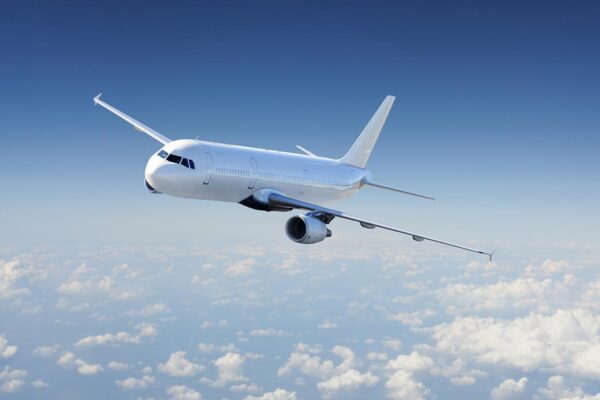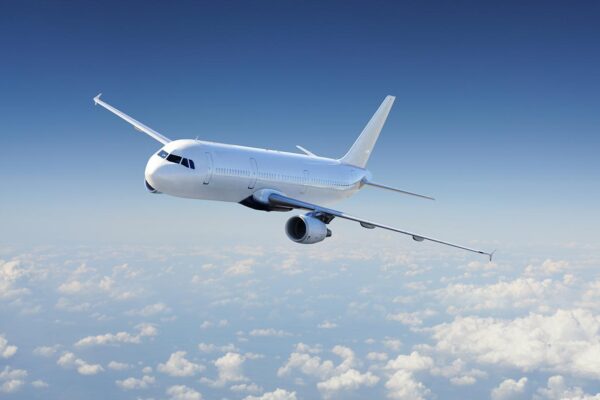Understanding Airport Security: A Critical Necessity
Airports are high-risk, high-traffic environments that require a solid security framework to ensure the safety of passengers, crew, and infrastructure. Given the sensitive nature of air travel, security threats range from terrorism and smuggling to petty theft and unauthorized access. To mitigate these risks, airport security relies on advanced technologies, strict protocols, and, most importantly, highly trained personnel. Security guards form the backbone of this system, acting as the first line of defense against suspicious activities. Their presence not only prevents potential threats but also ensures smooth day-to-day airport operations. From screening luggage to monitoring surveillance systems, security guards play a crucial role in maintaining a secure environment. Their role is indispensable in modern aviation, where safety and efficiency must go hand in hand.
Why Trained Security Guards Matter in Airports
Security guards assigned to airports undergo specialized training to handle the complex environment they operate in. They are taught how to recognize threats, respond quickly to emergencies, and maintain professional decorum while interacting with the public. Unlike ordinary security personnel, airport security guards must also comply with aviation security laws and international standards. Their training includes crowd control, handling hazardous materials, conflict de-escalation, and emergency response protocols. These skills allow them to respond efficiently to high-pressure situations, ensuring that any disruption is dealt with swiftly and safely. Their training and readiness are central to the safety and security of everyone within the airport premises.
Key Responsibilities of Airport Security Personnel
Airport security guards are tasked with a wide variety of responsibilities. They screen passengers, inspect luggage, monitor CCTV footage, and patrol the terminal. In addition, they are often stationed at access points to restrict unauthorized entry and verify credentials. They also play a critical role in managing queues, assisting travelers with directions, and ensuring compliance with safety procedures. Their daily routine is designed to cover all touchpoints where security breaches could occur. This holistic approach ensures that potential threats are identified and neutralized before they escalate. Through vigilance and proactive behavior, these professionals ensure the continuous safety of airport operations.
Passenger Safety and Customer Service
While safety is their primary responsibility, airport security guards are also trained in customer service. Airports serve as the first point of contact for many travelers, and a professional security team can make a significant difference in a passenger’s overall experience. By providing clear directions, assisting with mobility issues, and maintaining a courteous demeanor, guards create a safe and welcoming environment. Their ability to balance firmness with politeness is essential in managing large crowds and ensuring cooperation during security checks. This dual role enhances the reputation of the airport and contributes to a smoother travel experience for everyone.
Monitoring Entry and Exit Points
One of the most critical tasks of airport security guards is to secure all entry and exit points. These areas are often vulnerable to breaches if not properly monitored. Security guards stationed at these locations are responsible for verifying identities, checking credentials, and ensuring that only authorized personnel and passengers gain access to restricted zones. Their presence deters unauthorized access and minimizes the chances of smuggling or other illegal activities. Furthermore, guards coordinate with other law enforcement agencies and airport authorities to monitor these high-risk areas using both physical patrols and surveillance systems.
Role in Emergency Response and Crisis Management
Security guards are often the first to respond during emergencies such as fire alarms, medical incidents, or potential terrorist threats. Their quick decision-making and training in emergency procedures enable them to take charge of the situation and coordinate with first responders effectively. During a crisis, they assist in evacuating people, managing panic, and securing the perimeter. These actions are vital in limiting damage and ensuring the safety of everyone in the vicinity. Their role in crisis management extends beyond just responding—it also involves conducting drills and rehearsals to prepare for worst-case scenarios.
Surveillance and Technology Support
Modern airports are equipped with advanced surveillance systems including facial recognition, biometric scanners, and AI-based monitoring tools. Security guards play a critical role in operating and interpreting data from these systems. They monitor live feeds from multiple camera angles, report suspicious activities, and act swiftly on real-time alerts. Their ability to understand and utilize these technologies ensures that the airport’s security network functions seamlessly. The integration of human vigilance with technological advancement significantly boosts the airport’s ability to detect and prevent threats.
Supporting Aviation Regulations and Protocols
Airport security guards ensure compliance with national and international aviation security standards, such as those set by ICAO (International Civil Aviation Organization). Their responsibilities include checking for prohibited items, enforcing baggage limits, and maintaining order during boarding and screening. Guards act as a bridge between the public and regulatory authorities, ensuring that every traveler follows established protocols. This compliance not only guarantees passenger safety but also avoids penalties and delays that can result from security violations.
Importance of Consistent Vigilance
In an environment where risks can emerge at any time, constant vigilance is key. Security guards must remain alert throughout their shifts, regardless of external conditions or workload. Their continuous presence reassures passengers and deters those with malicious intent. Vigilance is not just about watching but also interpreting body language, noticing unattended baggage, and following up on anomalies. This high level of awareness is essential in identifying threats before they materialize.
Crowd Control and Incident Management
During peak travel times, managing large crowds becomes a top priority. Security guards play an essential role in preventing overcrowding, managing queues, and diffusing tense situations. Their training in crowd psychology helps them maintain order and prevent accidents or disruptions. For instance, if a flight is delayed or a gate changes suddenly, guards help redirect passengers and manage potential frustration. Their calm demeanor and control techniques help prevent minor issues from escalating into serious incidents.
Collaboration with Law Enforcement and Airport Staff
Security guards do not work in isolation. They collaborate closely with local police, customs officers, airline staff, and emergency services. This integrated approach ensures that all parties are aligned in their efforts to maintain airport security. Regular briefings, joint operations, and shared responsibilities strengthen the overall safety framework. These collaborations are especially important during major events, VIP arrivals, or heightened security alerts. The efficiency of this teamwork plays a crucial role in maintaining smooth airport operations.
Physical Security and Patrolling
One of the foundational responsibilities of airport guards is physical patrolling. This includes regular rounds in parking areas, check-in counters, restrooms, and other public spaces. Such active patrolling ensures that no suspicious activity goes unnoticed. Guards use handheld scanners, metal detectors, and other tools to conduct random checks while remaining non-intrusive. This visible presence of trained professionals creates a sense of safety among travelers and acts as a deterrent for wrongdoers.
Professional Security Services: The Need for Reliability
Engaging a reputable agency for airport security is critical. Agencies that provide licensed, trained, and reliable personnel ensure consistent performance and compliance with legal standards. For instance, many aviation hubs prefer working with experienced providers such as this trusted security company in Australia known for its well-structured solutions across sensitive locations. Their teams understand the dynamic requirements of airport security and bring both expertise and professionalism to the task.
The Role of Static Guards in Airport Facilities
In addition to mobile patrols, static guards play a significant role in maintaining order at fixed points like baggage claim, check-in counters, or security gates. These guards ensure that operations in these areas run without disruptions. Providers specializing in static security services for sensitive zones help airports maintain a calm and secure environment by assigning trained personnel to key positions. Their continuous presence enhances coordination and mitigates delays caused by unauthorized access or confusion.
Conclusion: A Pillar of Aviation Safety
Security guards are indispensable in the aviation industry. Their contribution spans across operational, technological, and interpersonal domains. From monitoring access points to responding to emergencies, they are vital to the safety, efficiency, and reliability of airport operations. As air travel continues to grow globally, the importance of having well-trained, vigilant security personnel will only become more significant.
FAQs
1. Why are security guards essential in airports?
They provide safety by monitoring threats, assisting passengers, and enforcing security protocols.
2. How are airport security guards trained?
They undergo special training in emergency response, surveillance, and conflict resolution specific to airport environments.
3. What are static security guards in airports?
These guards are stationed at fixed points to monitor and control access, ensuring operational continuity.
4. Do airport security guards use technology?
Yes, they operate surveillance systems, metal detectors, and biometric scanners to enhance security.
5. Are security guards involved in customer service?
Absolutely. They assist travelers, provide directions, and help manage crowds effectively.
6. How do security guards handle emergencies?
They are trained to respond quickly, coordinate evacuations, and communicate with first responders.





Leave a Reply
You must be logged in to post a comment.